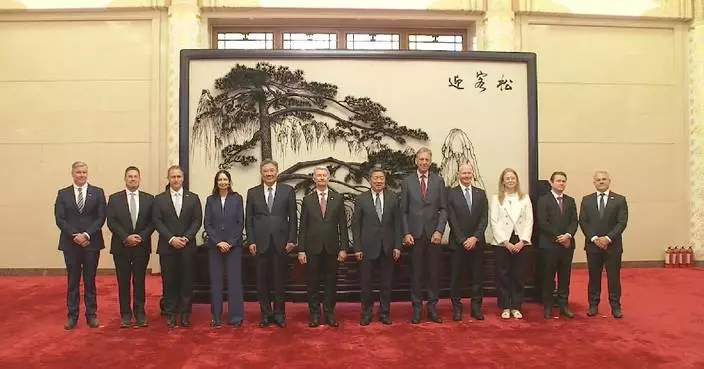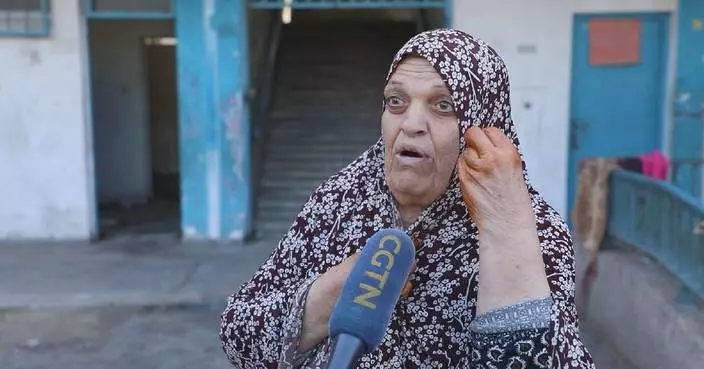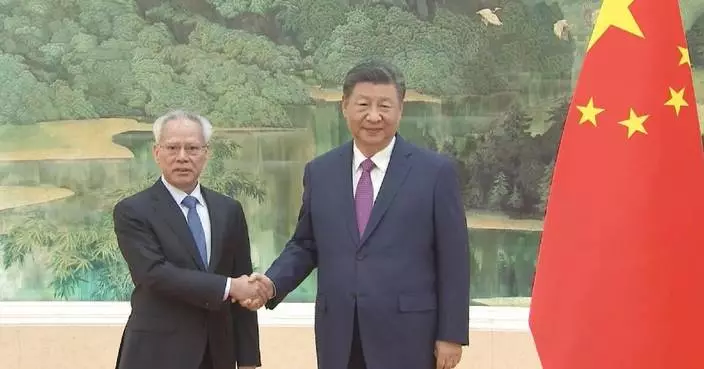China is ready to work with Slovakia to deepen strategic mutual trust and strengthen mutually beneficial cooperation, said Chinese Premier Li Qiang when holding talks with visiting Slovak Prime Minister Robert Fico in Beijing on Friday.
Noting that Slovakia is one of the first countries to establish diplomatic ties with the People's Republic of China, Li said the two sides have always respected each other, treated each other as equals, and conducted friendly cooperation during their 75 years of diplomatic ties, which has brought tangible benefits to the people of the two countries.
China stands ready to work with Slovakia to carry forward the traditional friendship, intensify high-level exchanges, deepen strategic mutual trust and strengthen mutually beneficial cooperation, so as to promote common development and prosperity of the two countries and inject more positive energy into global peace and development, Li said.
China is willing to maintain high-level political mutual trust with the Slovak side, Li noted, saying that the two sides should expand cooperation led by the high-quality Belt and Road development.
Li said that both countries should give full play to the role of the joint economic committee and the science and technology cooperation committee, and promote cooperation in fields including China-Europe Railway Express, connectivity, and infrastructure construction.
The two sides should further expand bilateral trade volume, and explore the cooperation potential in emerging industries such as digital economy and green economy, to jointly foster new economic drivers for both countries, said Li.
China and Slovakia should make joint efforts to provide a better business environment for enterprises in each other's countries, said the premier.
He noted that both sides should continue to improve exchanges in cultural tourism, science, education, sports, media, youth, and other areas of people-to-people exchanges, and promote the establishment of cultural centers in each other's countries to enhance the mutual understanding and friendship between the two peoples.
For his side, Fico said developing friendly relations between Slovakia and China is in the fundamental interests of both countries.
Slovakia supports the three major global initiatives proposed by China and firmly abides by the one-China policy, he said.
Slovakia is willing to maintain close high-level exchanges with China, strengthen exchanges and mutual learning on governance experience, and deepen cooperation in such areas as economy and trade, connectivity, and people-to-people and cultural exchanges with China, he said.
The prime minister said that Slovakia opposes the extra tariffs imposed by the EU on Chinese electric vehicles, adding that the EU and China should seek a proper solution through dialogue and consultation.
After the talks, Li and Fico jointly witnessed the signing of cooperation documents in various fields including transportation, economy and trade, culture and tourism, and green and low-carbon development.
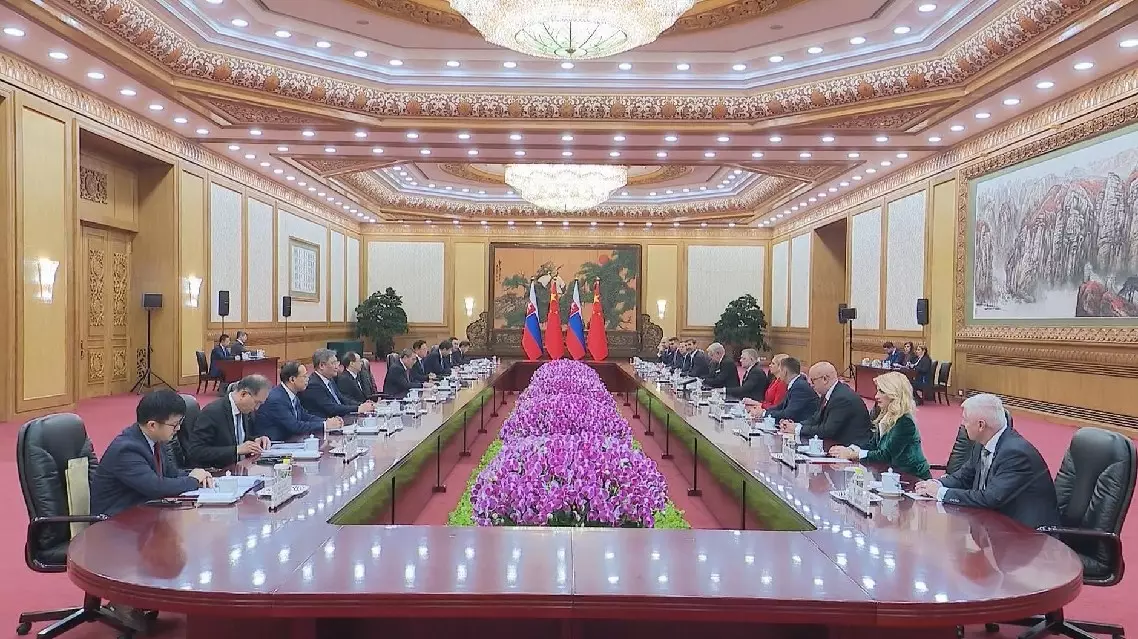
China ready to expand mutually beneficial cooperation with Slovakia
Leaders and experts involved in poverty alleviation efforts worldwide gathered in Beijing on Thursday for the 2024 Global Poverty Reduction and Development Forum, where China's commitment and contribution to global fight against poverty took center stage.
In over four decades, China has lifted 800 million people out of poverty. But it hasn't stopped there -- the country is now taking steps to build on this achievement and ensure millions don't slip back into destitution, while also reaffirming its commitment to global efforts aimed at alleviating poverty.
"Poverty reduction and development are the common themes of human society and carry people's aspirations for a better life. Looking to the future, China seeks to share experiences in poverty reduction, food security, agricultural science and technology, and implement pragmatic projects to benefit more countries," said Zhang Zhili, an official of the Chinese Ministry of Agriculture and Rural Affairs.
The agriculture ministry says China's hybrid rice is now sown on nearly 70 countries across five continents. In many African nations, yields have skyrocketed from an average of two tons to an impressive 7.5 tons per hectare. China has also launched numerous programs and offered aid and technical support to developing countries in agricultural production and rural development.
Under the China-initiated Lancang-Mekong Cooperation Special Fund, Myanmar has worked with 118 projects from 2017 to 2024 with a budget of 35.2 million U.S. dollars, official data showed.
"Through the result of the project, we can learn a lot of lessons. We will continue the partnership with China, and also all global partnerships, including ASEAN," said U Khant Zaw, permanent secretary of Myanmar's Ministry of Cooperatives and Rural Development.
From December 1, 2024, China will extend zero-tariff treatment to 100 percent of tariff lines for products originating from all least developed countries (LDCs) that maintain diplomatic relations with China.
"In our meeting with the Chinese ambassador in Afghanistan, he said the tariff for Afghan agricultural exports will come down to zero. We can bring more Afghan agriculture and livestock production to the Chinese market. We hope we can strengthen this relationship in the future," said Sadr Azam Usmani, Afghan vice minister of Agriculture, Irrigation and Livestock.
In Africa, China has set up and implemented 47 poverty reduction and agricultural projects, trained close to 9,000 agricultural personnel, shared over 300 advanced and applicable technologies, and benefited over one million smallholders under its poverty reduction and agricultural development program, according to the Chinese Foreign Ministry.
"Agriculture is modernized by mechanization and more technology transfer to the developing countries, so it can have a positive impact in the production. We have a Chinese demonstration center in my country where Chinese engineers come and demonstrate practices," said Abdourahmane Diouf, first counselor of Senegal to China.
The fight against poverty is a collective endeavor that transcends borders. As stakeholders from around the globe come together, there is renewed hope that through shared commitment, the world can make progress toward eradicating poverty and ensuring that no one gets hungry.
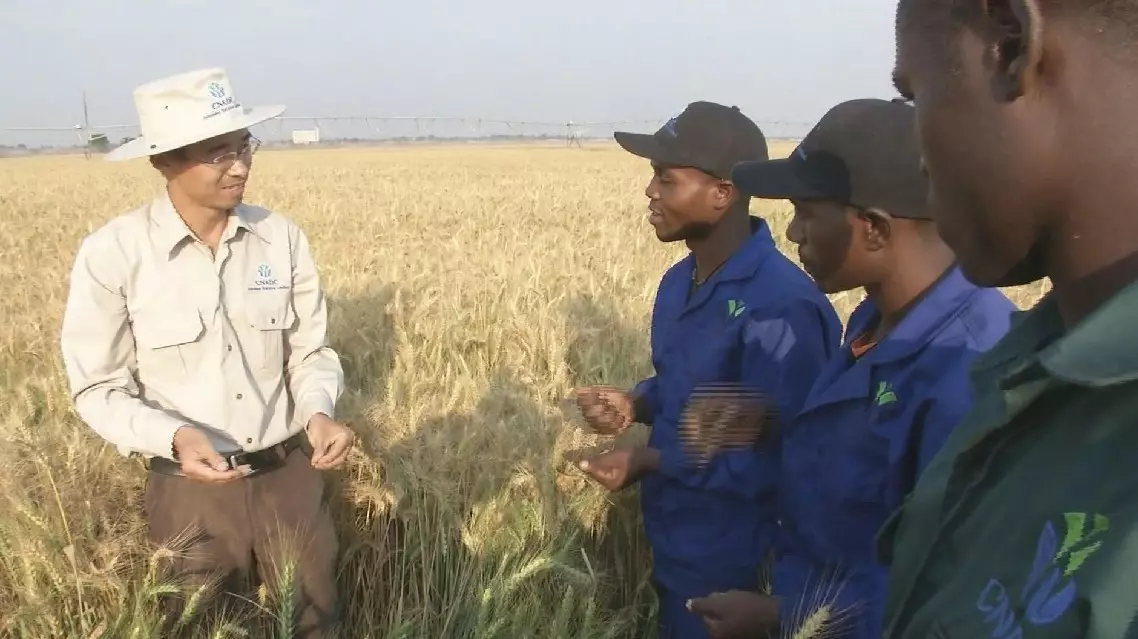
China reaffirms commitment to global fight against poverty at Beijing forum




